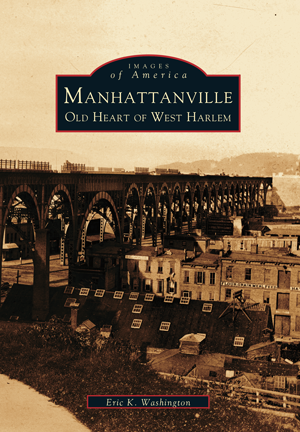Rooka Hall
Rooka Hall, Manhattanville, Manhattan, New York
Built 1800, for Jacob Schieffelin III (1757-1835) and his wife Hannah Lawrence (1758-1838). This Federal-period mansion was the most prominent in the immediate vicinity of Manhattanville, but was later demolished.
Schieffelin, co-founder of Manhattanville, had been a supply merchant to the British army before buying the wholesale druggist business started by his brother-in-law, Effingham Lawrence (1760-1800), and founding Schieffelin & Co., of New York. Still in operation today (marketing and distributing wines and spirits), Schieffelins was the first firm to import Hennessy Cognac into North America (1795) and in 2005 it was acquired by Moët Hennessy USA.
The Schieffelins kept a townhouse on Pearl Street (next to the well-known mansion known as Walton House, built by William Walton (1706–1768) in 1757), which they leased from James Beekman (1732-1807), of Mount Pleasant. In 1799, they purchased 34 acres of farmland in Harlem from Samuel and Johanna Kelly, just south of Pinehurst. A year later, Schieffelin sold 15 acres of this land to his great friend, Founding Father Alexander Hamilton (1755-1804), on which was built the still extant Hamilton Grange. Meanwhile, on the remaining 19 acres overlooking the Hudson, the Schieffelins built their summer home, Rooka Hall, near what is now 144th Street.
Each summer, the Schieffelins would leave the city by stagecoach for their large country home, situated in "beautiful meadow-arable and woodland". Unfortunately, little is available as to the architecture and detail of the house, though it probably resembled the likes of Hamilton Grange.
In 1806, Schieffelin and two of his brothers-in-law - John Burling Lawrence (1774-1844) and Thomas Buckley (1771-1846) - enlarged their country estates to establish the village of Manhattanville (incorporated that same year), for which Schieffelin drew up the street plans.
By 1810, his profits were affected by British and French attacks on his ships and Schieffelin was forced to put his country estate (valued at $16,000) up for sale. The notice referred to Rooka as "that elegant and beautiful farm, of 24 acres, on the Hudson River and Bloomindale Road.. The buildings are insured for $7,600.. There are above 1,000 choice grafted Fruit Trees (and) the fences have cost $1,000." Its history after that becomes unclear and it is not known if Rooka Hall was then sold or demolished.
Categories
Styles
Share
Connections
There is 1 member connected to this house, are you? Connect to record your link to this house. or just to show you love it! Connect to Rooka Hall →
David Stuyvesant Chanler's ancestor, Jacob Schieffelin III, owned Rooka Hall

